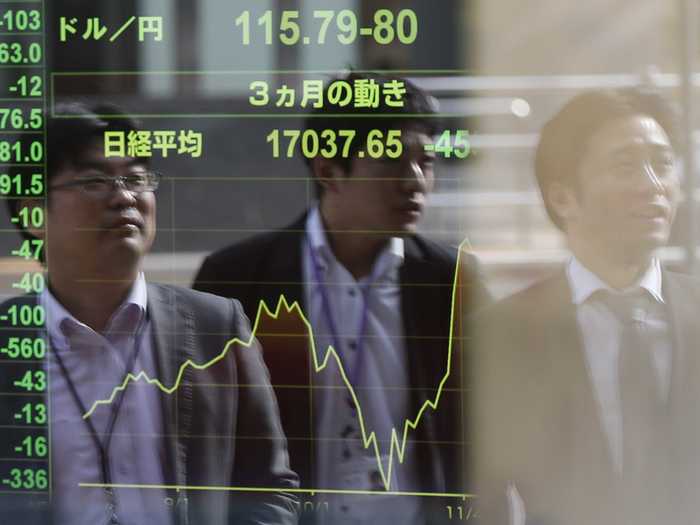6 myths about Japan that put its 'demographic time bomb' in perspective
MYTH: Robots are a sign of progress.

MYTH: Japanese consumer tech is cutting-edge.

In the 1990s, Japan was a dominant force in the tech world. Consumer electronics brands like Sony, Panasonic, Toshiba, and Nokia brought in billions in revenue. The glitz of Tokyo's neon lights only added to the luster.
Over the last decade, however, Japanese tech brands have seen a fall from grace. A lack of outward focus has been a driving factor, as Japan is a highly insular society. Immigration is almost non-existent, and major companies seldom look to other parts of the world for inspiration on ways to innovate.
Had Japanese brands captured the mobile market as it began to take off, experts suggest, the economy might be in a different position today.
MYTH: Widespread aging is cause for celebration.

From a public health standpoint, Japan's average life span of 81 years for men and 89 years for women is an incredible feat. From a demographic and economic one, it's a sure sign the demographic time bomb will keep ticking.
A shrinking economy has left Japan's younger generations unable to care for their grandparents' generation. Already saddled with long work hours and stagnating wages, younger workers must also pay out greater Social Security costs.
This has turned some Japanese prisons into de facto nursing homes, as the elderly commit crimes just to be cared for.
MYTH: People in Japan aren't interested in having sex.

The simple reason for Japan's falling fertility rate is that people aren't having kids. But it's a more complex story as to why they don't, and one that doesn't square with some reports about Japanese people not taking an interest in sex.
Japan's labor market isn't designed for young people who hold egalitarian attitudes about gender and work. It's built for men to work at one company their whole lives, and for women to largely remain housewives.
But now that both sexes are committing themselves to incredibly long work hours, there literally aren't enough hours in the day for many people to have sex — regardless of their interest in making it a priority.
MYTH: Japan's work ethic is a model of grit.

Ever since Japan's labor force avowed itself in the 1950s to rebuild the country post-WWII, Japanese citizens have been known for their tireless work ethic.
It's not uncommon for workers, still majority men, to log 12- or 16-hour days.
In recent years, this has led Japanese companies to see a rise in karoshi, or "death by overwork." Burdened by unsustainable work hours, some employees commit suicide or die by heart attack or stroke, highlighting the pressure workers are under to restore Japan's reputation.
MYTH: Japan is an economic powerhouse.

Japan's GDP is the third-largest in the world, at nearly $5 trillion. But its national debt is more than twice that, at $10.5 trillion.
(By way of comparison, the US has a GDP of $18.6 trillion and a debt of $20.5 trillion.)
Japan's financial woes began with a bubble in the mid-1980s that led to a full-blown crisis in the early 1990s. Since then, Japan has struggled to make it back to the level of prosperity it had in the 1960s, when it was the second-largest economy in the world.
Popular Right Now
Popular Keywords
Advertisement